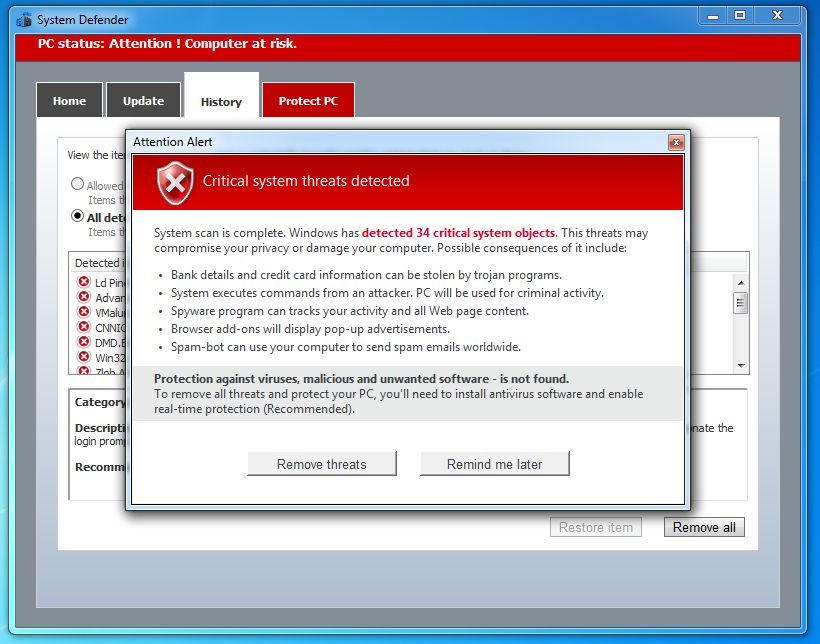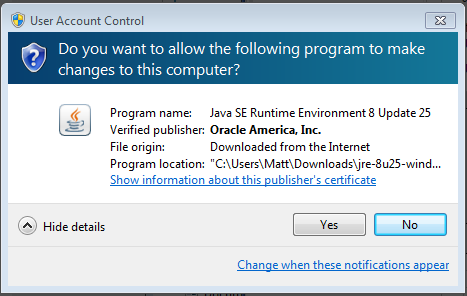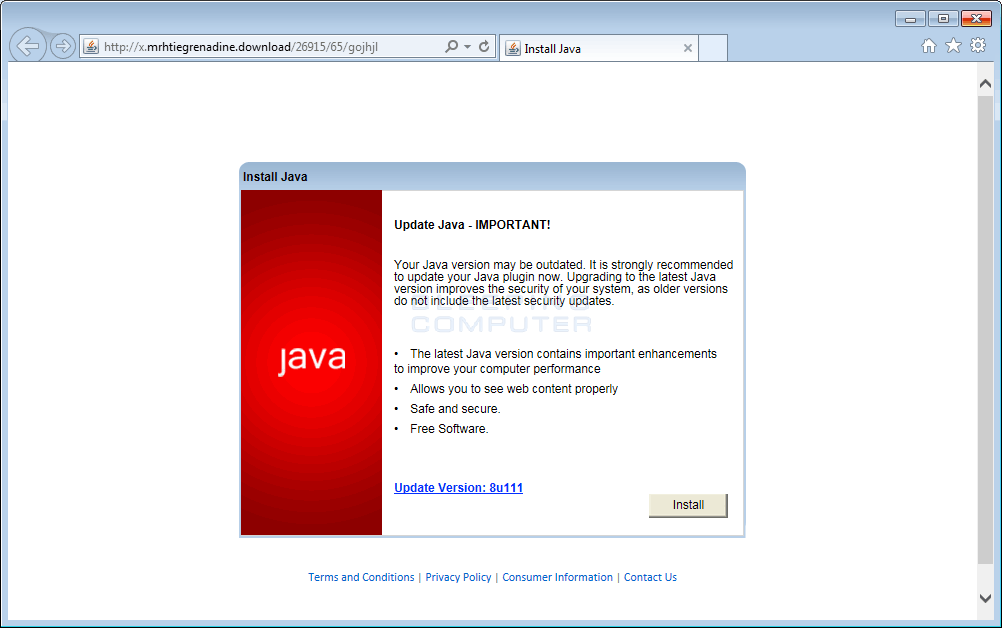

- #Fake java install virus how to
- #Fake java install virus software
The first one is almost stupidly simple, and works some of the time:

Once you encounter this error, there’s a couple things you can do. What actually happens is that these pieces of malware block you from running almost anything on your PC, and often prevent you from running apps from a Flash drive, with an error like this: So what’s the problem? Can’t you just run a anti-virus scan? Well… it’s not quite that simple.
#Fake java install virus how to
How To Remove Security Tool and other Rogue/Fake Antivirus Malware. How To Remove Advanced Virus Remover and Other Rogue/Fake Antivirus Malware. 
How To Remove Antivirus Live and Other Rogue/Fake Antivirus Malware.How To Remove Internet Security 2010 and other Rogue/Fake Antivirus Malware.Not sure what we’re talking about? Be sure to check out our previous articles on cleaning up fake antivirus infections. Here’s a really simple tip to defeating these types of malware, and a quick review of other options. More informationĮxplore SCAMwatch to find out more about scams that commonly target Australians.You might be wondering why we have a screenshot of what appears to be AVG Anti-Virus, but is in fact a fake anti-virus malware that holds your computer hostage until you pay them. Report the matter via the report a scam page in SCAMwatch.
#Fake java install virus software
Some sites may automatically download malicious software on to your computer. Instead, find your anti-virus vendor's contact details through an internet search.
NEVER rely on the contact details provided in a pop-up message. NEVER click on the links in spam email. NEVER open email attachments unless you can verify the sender and you trust them. Keep your computer updated with the latest anti-virus and anti-spy ware software. Use reputable pop-up blocker software to avoid pop-ups on your computer. Instead, hit control + alt + delete to view a list of programs currently running and delete the pop-up alert from the list of running programs. NEVER click on pop-up alerts! Don't even click on the cross to delete the pop-up alert as this may result in getting more pop-ups. Other signs that your computer has been infected include new desktop icons, new wallpaper or your default homepage is redirected to another site. If your computer has been infected, it may dramatically slow down. The message is not addressed to a specified recipient, instead it is addressed to the 'account holder' or uses another generic title. The alert may request you to pass on the "warning" to "others in your address book" or "everyone you know". Scammers commonly use high pressure sales tactics to convince you to buy NOW!. You may be bombarded with pop-up alerts, even when you're not online. Fake anti-virus spyware programs often generate more "alerts" than the software made by reputable companies. If you are unsure whether it is a genuine warning, check the official virus page of your anti-virus vendor or ask a computer professional. Once your computer is infected, the scammer commonly gathers personal information to steal your identity or to sell it to other criminals.Īlthough the majority of anti-virus pop-up alerts are fake, there is an off-chance that you have received a legitimate virus warning. This scam aims to either charge you for bogus software and/or obtain your personal information. The software or "free scan" offered in pop-up alerts often doesn't work or actually infects your computer with the dangerous programs it is supposed to protect against. The pop-up advertisements aim to mimic genuine warning alerts generated by computer security software. Scammers often use the names of well-known companies that specialise in computer software to gain your trust. SCAMwatch warns consumers to be wary of fake anti-virus alerts. They commonly appear after you open an email attachment, download files, visit websites programmed to download malicious software or click on a pop-up advertisement. You may be one of the numerous people who have received similar pop-up alerts. "Warning-your computer is infected! System detected virus activities. About Scamwatch Expand submenu for "About Scamwatch". News & alerts Expand submenu for "News & alerts". Scam statistics Expand submenu for "Scam statistics". Attempts to gain your personal information. Types of scams Expand submenu for "Types of scams".







 0 kommentar(er)
0 kommentar(er)
